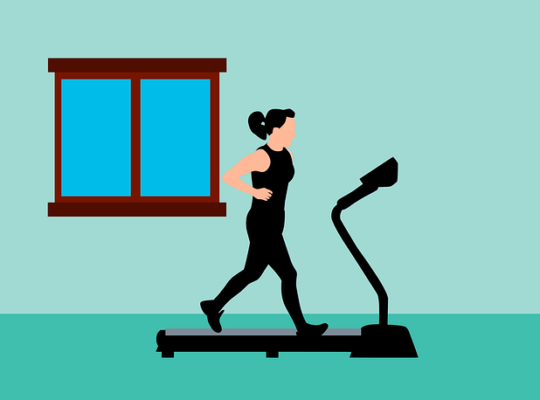
The teenage years are a time of significant change and growth, both physically and emotionally. While this period offers many opportunities for self-discovery and personal development, it can also be accompanied by a great deal of stress and pressure. Teenagers face a myriad of challenges, from academic demands and social pressures to hormonal changes and family dynamics. However, by learning effective stress management techniques and prioritizing self-care, teens can navigate these challenges with resilience and confidence. In this article, we will explore common stressors faced by teens and offer practical strategies for managing stress, promoting resilience, and prioritizing self-care.
Common Stressors Faced by Teens
- Academic Pressure: Academic demands, such as exams, homework, and college applications, can be a significant source of stress for teenagers. The pressure to excel academically and meet expectations from parents, teachers, and peers can feel overwhelming at times.
- Social Challenges: Adolescence is a time of intense social development, as teens navigate friendships, romantic relationships, peer pressure, and social media. Concerns about fitting in, being accepted, and maintaining social status can contribute to feelings of stress and anxiety.
- Family Dynamics: Changes within the family dynamic, such as divorce, remarriage, sibling rivalry, or financial strain, can create stress for teenagers. Conflicts with parents or siblings, feeling misunderstood, or not having enough support at home can exacerbate feelings of stress.
- Hormonal Changes: Hormonal fluctuations during adolescence can impact mood, energy levels, and stress responses. Teenagers may experience mood swings, irritability, or heightened emotional sensitivity due to hormonal changes, which can contribute to stress.
Practical Strategies for Managing Stress
- Develop Healthy Coping Skills: Encourage teenagers to develop healthy coping skills to manage stress effectively. This may include deep breathing exercises, progressive muscle relaxation, mindfulness meditation, or guided imagery. These techniques can help teens relax their minds and bodies and reduce feelings of stress and anxiety.
- Practice Time Management: Help teens develop good time management skills to balance their academic, extracurricular, and personal responsibilities. Teach them to prioritize tasks, set realistic goals, and break larger tasks into smaller, more manageable steps. By staying organized and managing their time effectively, teens can reduce feelings of overwhelm and stress.
- Stay Active: Regular physical activity is a powerful stress reliever, as it releases endorphins, the body’s natural feel-good chemicals. Encourage teens to engage in activities they enjoy, whether it’s playing sports, dancing, hiking, or practicing yoga. Even just taking a short walk or bike ride can help reduce stress and improve mood.
- Connect with Supportive Relationships: Encourage teenagers to seek support from trusted friends, family members, or school counselors when they’re feeling stressed or overwhelmed. Talking to someone they trust can provide validation, perspective, and emotional support, helping teens feel less alone in their struggles.
- Set Realistic Expectations: Help teens set realistic expectations for themselves and recognize that it’s okay to ask for help when needed. Encourage them to focus on progress rather than perfection and to celebrate their achievements, no matter how small. Remind them that everyone experiences setbacks and failures, and it’s how they respond to challenges that matters most.
Prioritizing Self-Care

- Get Adequate Sleep: Adequate sleep is essential for physical and mental well-being, yet many teenagers struggle to get enough rest. Encourage teens to establish a consistent sleep schedule and create a relaxing bedtime routine. Limiting screen time before bed and creating a comfortable sleep environment can also improve sleep quality.
- Eat a Balanced Diet: A healthy diet plays a crucial role in managing stress and supporting overall well-being. Encourage teens to eat a balanced diet rich in fruits, vegetables, whole grains, lean proteins, and healthy fats. Avoiding excessive caffeine, sugar, and processed foods can help stabilize mood and energy levels.
- Practice Relaxation Techniques: Teach teens relaxation techniques such as deep breathing, progressive muscle relaxation, or mindfulness meditation. Encourage them to set aside time each day to engage in these practices and prioritize self-care.
- Engage in Activities They Enjoy: Encourage teens to engage in activities they enjoy and find meaningful, whether it’s pursuing hobbies, spending time with friends, or practicing creative outlets such as art or music. Engaging in activities they love can help reduce stress, boost mood, and improve overall well-being.
- Set Boundaries: Help teens set boundaries around their time, energy, and relationships. Encourage them to say no to activities or commitments that feel overwhelming or draining, and to prioritize activities that nourish and energize them. Setting boundaries is essential for maintaining balance and preventing burnout.
In conclusion, managing stress during the teenage years requires a combination of practical strategies and self-care practices. By identifying common stressors, developing healthy coping skills, and prioritizing self-care, teenagers can build resilience and navigate the challenges of adolescence with confidence and grace. Encourage teens to seek support from trusted adults and to prioritize their mental and emotional well-being as they navigate this transformative stage of life.






